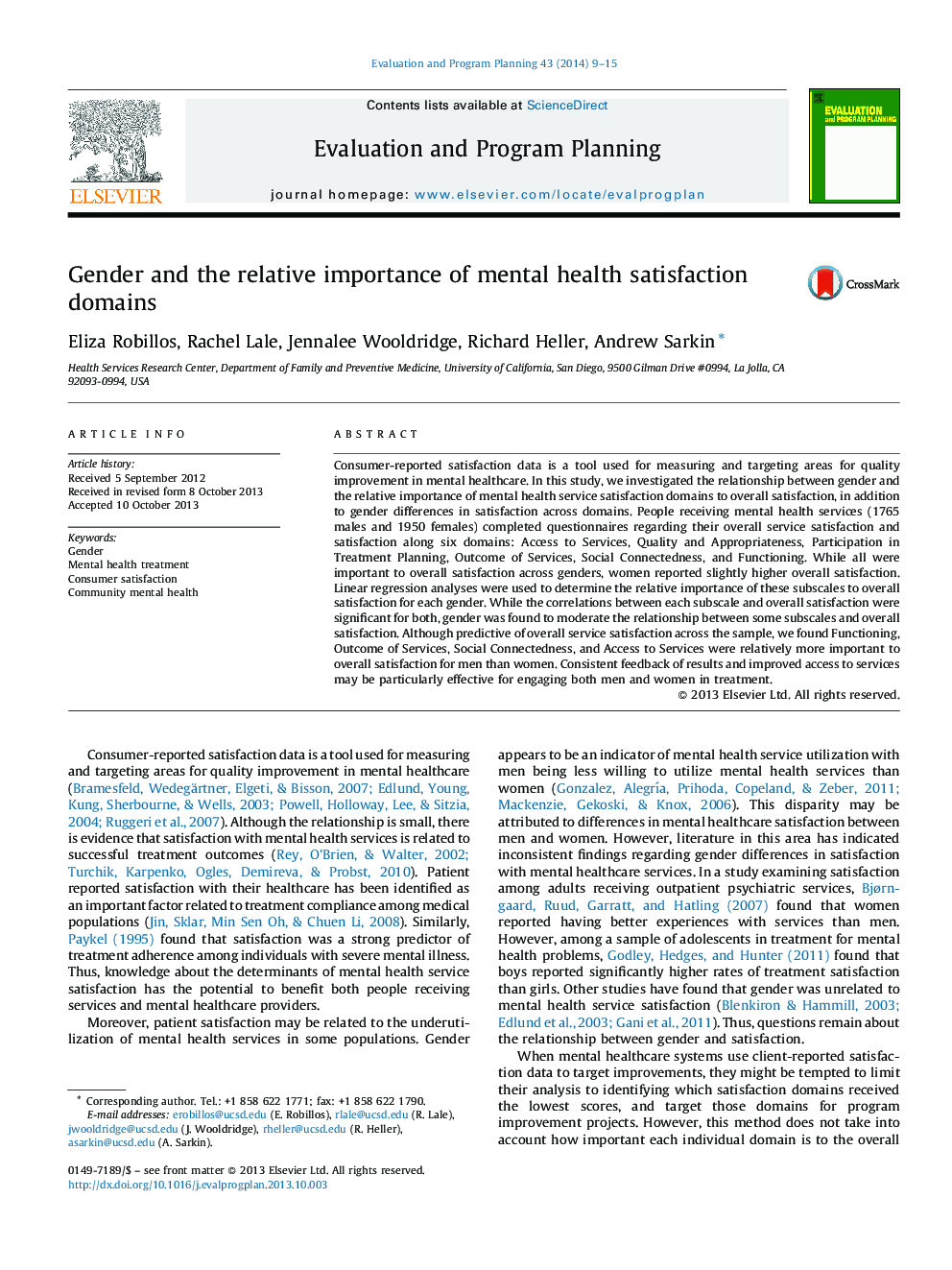| Article ID | Journal | Published Year | Pages | File Type |
|---|---|---|---|---|
| 322485 | Evaluation and Program Planning | 2014 | 7 Pages |
•Consumer satisfaction data used for quality improvement in mental healthcare.•Consumers completed questionnaires assessing satisfaction in several domains.•Men and women reported high levels of satisfaction with services.•Results oriented domains were more important to men's overall satisfaction.•Feedback about treatment results may help engage men in mental health treatment.
Consumer-reported satisfaction data is a tool used for measuring and targeting areas for quality improvement in mental healthcare. In this study, we investigated the relationship between gender and the relative importance of mental health service satisfaction domains to overall satisfaction, in addition to gender differences in satisfaction across domains. People receiving mental health services (1765 males and 1950 females) completed questionnaires regarding their overall service satisfaction and satisfaction along six domains: Access to Services, Quality and Appropriateness, Participation in Treatment Planning, Outcome of Services, Social Connectedness, and Functioning. While all were important to overall satisfaction across genders, women reported slightly higher overall satisfaction. Linear regression analyses were used to determine the relative importance of these subscales to overall satisfaction for each gender. While the correlations between each subscale and overall satisfaction were significant for both, gender was found to moderate the relationship between some subscales and overall satisfaction. Although predictive of overall service satisfaction across the sample, we found Functioning, Outcome of Services, Social Connectedness, and Access to Services were relatively more important to overall satisfaction for men than women. Consistent feedback of results and improved access to services may be particularly effective for engaging both men and women in treatment.
